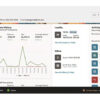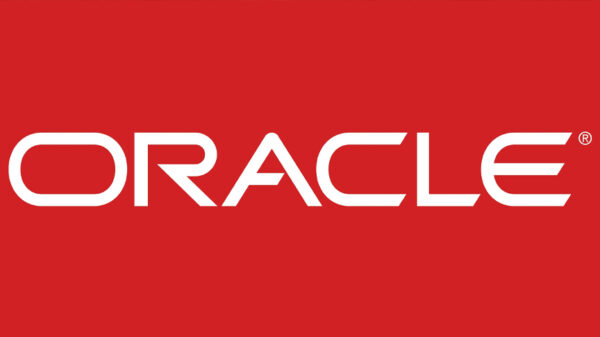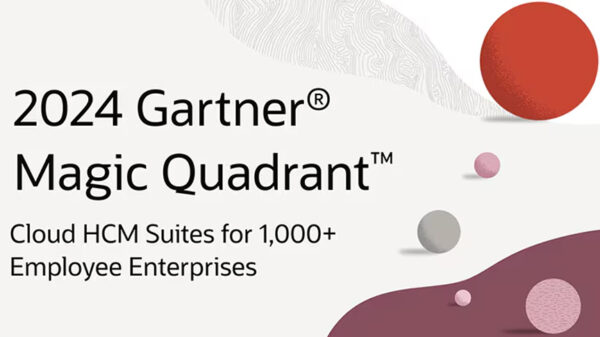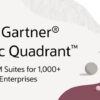An increasing number of businesses in Asia are turning to Oracle Cloud Infrastructure and Oracle Autonomous Database to gain benefit from the advantages the company’s autonomous technology brings. These include lower costs, better security and management, higher-performance. Combined these then drive greater business productivity and efficiency, and users now include the likes of NRI, Nissan, Hansol PNS and 7 Eleven in the Philippines.
Garrett Ilg, Executive Vice President and Head of Oracle Japan and Asia Pacific, said, “It is increasingly clear that customers perceive Oracle as a strategic partner for their cloud requirements. Our autonomous cloud generates new types of value for our customers. It is the answer to their resource challenges, their cybersecurity challenges, performance challenges – most of all Oracle cloud technology has superior economics. Given the current circumstances and operating environments across the world, customers are responding with commitment to Oracle cloud technology to reflect their support of the value being offered.
Oracle Cloud Infrastructure
Companies from across Asia Pacific have been welcoming Oracle’s eight new cloud regions; opened within just over a year. They include facilities in Tokyo and Osaka in Japan, Sydney and Melbourne in Australia, Seoul and Chuncheon in South Korea, and Mumbai and Hyderabad in India. Oracle’s second-generation cloud offers autonomous operations that dramatically minimize human error and provide maximum security, all the while delivering elastic and server-less services with high performance, cost-effectively.
“As one of the largest convenience stores in the Philippines, with over 2,900 stores distributed nationwide we need a robust and resilient IT infrastructure to ensure we can meet our customers’ demands 24/7. With growing volumes of data is growing, our systems are under pressure,” said Jeru Andrade, Systems Support Team Leader, IT division, Philippines Seven. “With Oracle Cloud we can now run the exact same software in the cloud with no code changes, even where there are customization, and we get better performance, better cloud native security features, we’ve been able to improve and automate tasks currently and as a result, improve the customer experience and speed of service.”
Also using these new facilities are recent adopters of Oracle Cloud Infrastructure including the likes of: NRI, Nissan, Riken and Otaru University of Commerce in Japan, the Law Society in Australia, Medicom in South Korea, Hindalco, Indian Oil Corporation, and Star Health Insurance in India, as well as City Bank in Bangladesh, and Shaukat Khanum Memorial Hospital in Pakistan.
Oracle Cloud Infrastructure is also gaining a strong customer base from within the rapidly growing ISV community. Users in Asia Pacific include Creansmaerd, Itochu Cable Systems, TIS Hokkaido in Japan, Emersion, iliveit, and Applied Precision Medicine in Australia, Dain Leaders, Astems and CIP Systems in South Korea, and Comviva in India.
Also newly available in Asia Pacific in 2020 is a new Microsoft Azure cloud interconnect location in Tokyo enable businesses to share data across applications running in Microsoft Azure and Oracle Cloud and the availability of Oracle Cloud VMware Solution, a dedicated, cloud-native VMware-based environment that enables enterprises to easily move their production VMware workloads to Oracle Cloud Infrastructure.
Oracle Autonomous Database
Oracle Autonomous Database also continues to see ongoing adoption, driven by its ability to help companies reduce operational costs by up to 90 percent by offering a converged, cloud native database capabilities and machine learning-based automation for full lifecycle management. It also supports both transaction processing and data warehousing workloads and is now available not only in the cloud, but also on-premises, right smack-dab in the customer’s data centre and behind the customer’s firewall by using Oracle Cloud@Customer.
Organizations now using the cloud service include the likes of AS ONE and Propre Japan, Hansol PNS and DB Hitek in Korea, AU Small Finance Bank and Sharda University in India, Regional Development Bank in Sri Lanka, Kerry Logistics, Hehegu and Pagoda in China, AsiaPay in Hong Kong, and Johor Ports and JNE in ASEAN.
“When I evaluated Oracle Autonomous Transaction Processing, it was incredible to see the high performance it achieved without any manual tuning by us – all we did was migrate the data. After getting started in our production environment, it became increasingly clear that the Autonomous Database really doesn’t need tuning. Previously, it took several months to collect and analyze real-estate information. Now by leveraging Oracle Autonomous Database, we can develop unique services such as propPITCH, propTREE and propCHART, which can provide daily data in real-time. By relying on Oracle Autonomous Database for our operations management, we have been able to spend more time and focus on developing analytics services to create a strong foundation from which we can expand to deliver new and innovative services based around real-time information,” said Mr. Ryota Negishi, Chief Technology Officer, Propre Japan.

















































































































